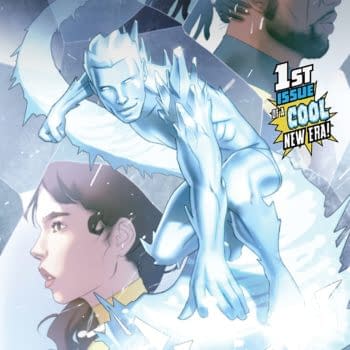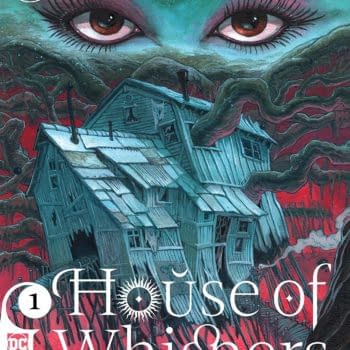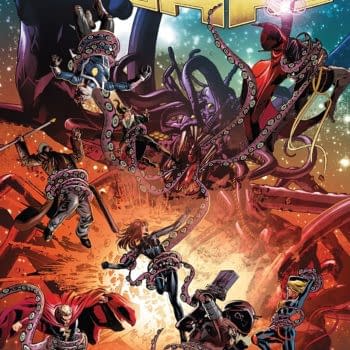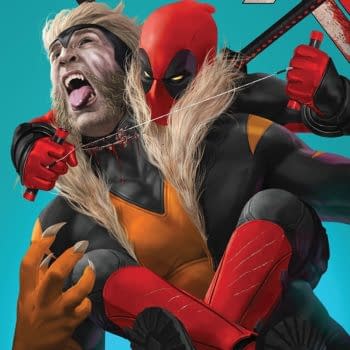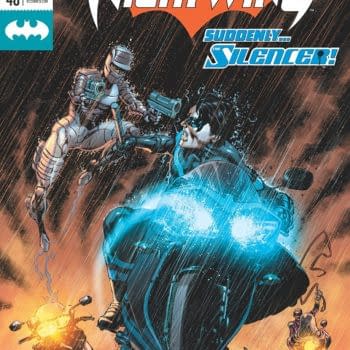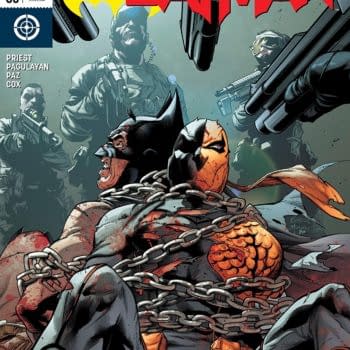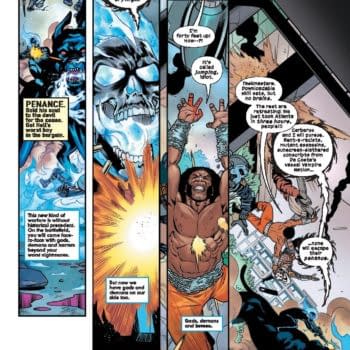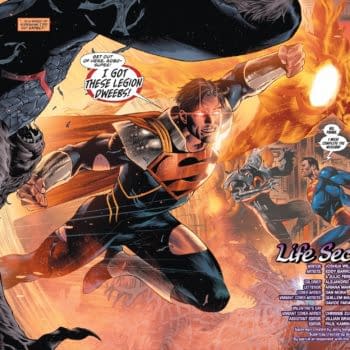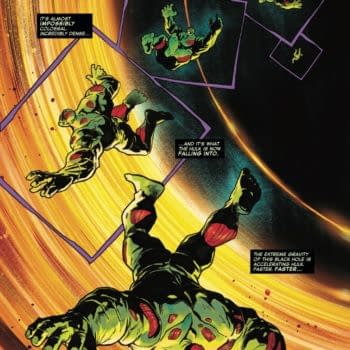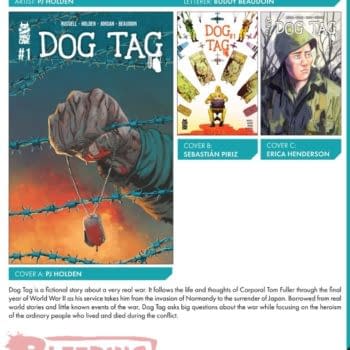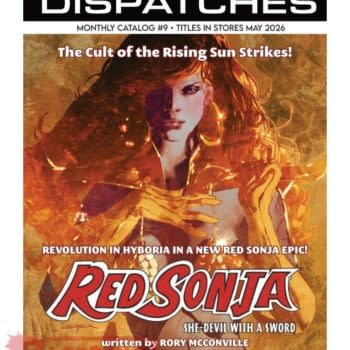Posted in: Comics | Tagged: drama, frisson comics, horror, HRL, indie comic, katie whittle, the trade, thomas smith
Indie Comic Spotlight: The Trade – A Darkly Beautiful Night
A young woman walks into the bar and begins chatting with the bartender. After some conversation, the young woman, Seren, manages to get the bartender's name, Alice, after ripping a two-cent coin in two. Afterwards, the two take a trip to the zoo after dark, where Seren begins revealing some unexpected details about herself and her life.

The Trade, written by Thomas Smith and illustrated by Katie Whittle, primarily consists of the night Seren and Alice spend together. Their chemistry and dialogue are largely enjoyable, and they seem like genuinely fun people to be around. Reading about their time together is great. You can definitely buy that these two would get along.
It pegs itself as a horror comic, but it mostly functions as a drama. It has a horror-oriented visual design, and there are moments of existential horror and delightfully gruesome panels. However, it likely won't keep you up at night.
The art is charming, if a bit inconsistent. Body language is a big part of the experience, and it is a styling that involves people's bodies morphing somewhat to match the emotion they express. As such, at times Alice and Seren can look a bit weird. That aside, the environment and atmosphere of the comic is very visceral, and it's great. It's a monochromatic comic, sort of. It plays with the background color to play with the atmosphere and emotions, and it's done very well.
The comic also plays with the set-dressing in some intriguing ways. The panels aren't square and don't take up that much of the page. They're oval-shaped, and much of the page is pitch black in surrounding. Given that this is an intimate yet odd night in a closed-down zoo, that change in the script works quite well.
The lettering can get confusing. Instead of being generically neat text, the lettering looks handwritten and can be spaced oddly around character's heads to accommodate for space. That first detail isn't a big problem until some letters start ramming up against one another and make the dialogue hard to read. The second detail is confusing every time it occurs, and I'm not sure it works as a style choice.
There is a large revel midway through the comic, and it necessitates a spoiler warning to dive into it adequately. You've been warned.
So, Seren is a vampire, but she doesn't feed on people. She claims to not want to feed on Alice, and we get the backstory on how she became a vampire and how that's changed her life.
Like the better vampire stories, the vampirism represents something. However, that changes depending on the scenario Seren is explaining.
Before we discuss the metaphors and analogies this comic uses, let's first talk about the idea of one thing representing another in texts. A detail or theme of a story can be taken to mean just about anything depending on the critical lens you use to analyze the story. If you read this comic, you may come to take said vampirism to mean something else than I did. That's fine, and it will likely happen. We have had different education, experiences, and values. I don't tend to stick to any one critical lens since I'm not currently a professional scholar. I tend to gravitate towards feminist theory and race theory, because I'm a bleeding-heart SJW cuck snowflake. It's who I am.
It starts off as a fairly unambiguous rape metaphor, as the guy who changes her does it without permission so that they can be together. He tries to convince her to be with him, going as far as self-harm to express his adoration of her.
It also functions as a metaphor for queerness at other times. Seren is gay, and Brian calls that a phase shortly after changing her. The vampirism also results in Seren being treated like a freak, and she is ostracized for the behaviors it necessitates.
Later, Seren changes her mother to save her life, and, from there, it takes more traditional vampiric themes of responsibility, agency, and how we justify our actions. That last one is handled especially well, as Alice consoles Seren after hearing her story.
There's nothing inherently wrong with the vampirism representing various things, and it is very possible that the creators intended for it to mean none of these things. However, if you were to take any one analogy for the entire runtime of the comic, you'll get some odd interpretations of the idea, with the possible exception of the rape metaphor. That one could actually likely fit the entire framework of the comic.

This slight criticism aside (and it admittedly requires a deep-cut analysis of the book), The Trade is a genuinely engaging read about two endearing and charming characters. It plays with some interesting ideas, and its overall aesthetic is unique and holds together well for most of the comic. I definitely recommend this one, and you should check it out.
The Trade, as well as their other comics, are available on Frisson Comics' Etsy.


